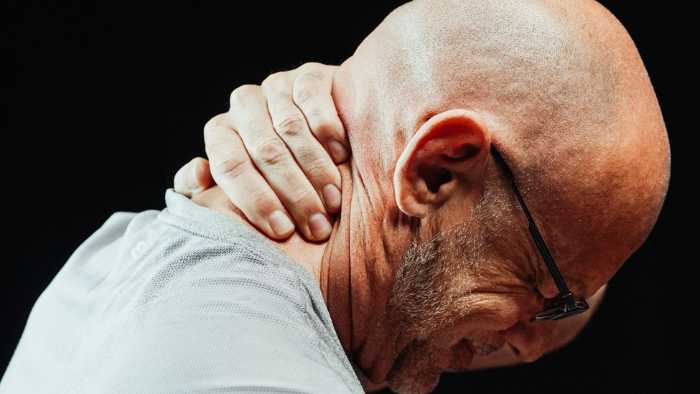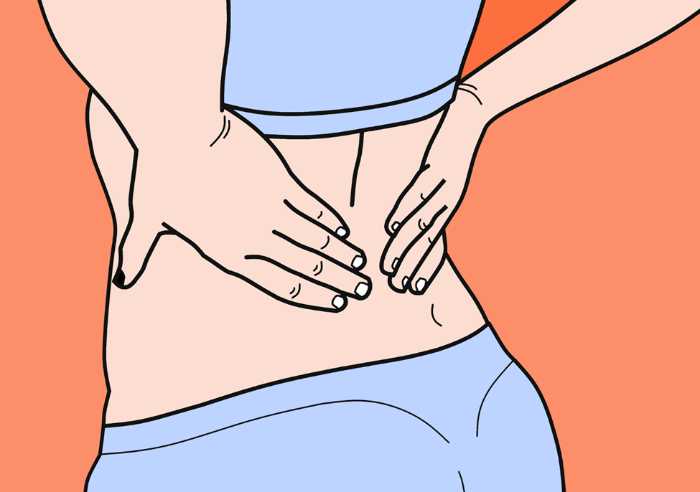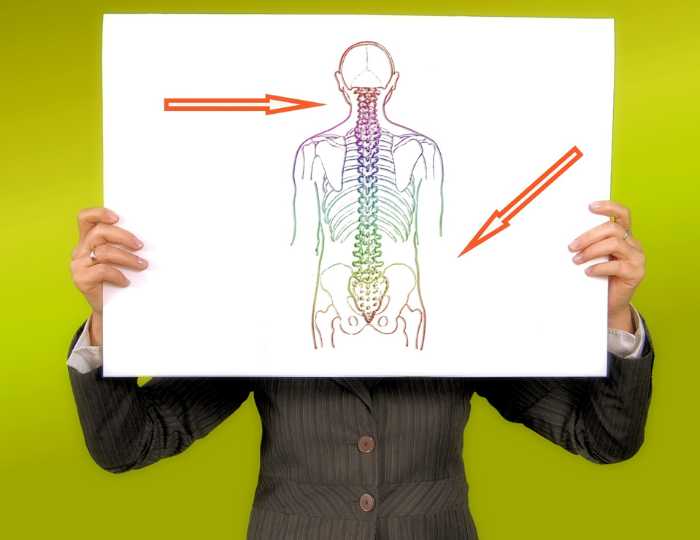Degenerative disc disease refers to a condition that affects the spinal discs. These discs are located between the vertebrae in your spine and act as shock absorbers. They help keep your spine flexible and allow you to move around without pain. When DDD occurs, the discs degenerate over time and can cause various symptoms. In this article, we will discuss ten common symptoms of degenerative disc disease. If you are experiencing any of these degenerative disc disease symptoms, you must see a doctor immediately!
Sudden Onset Of Pain After An Injury Or Accident
Sudden onset of pain after an injury or accident can be a symptom of degenerative disc disease. The discs in your spine slowly break down over time, and an injury can cause them to break down even faster. The discs act as cushions between the vertebrae in your cervical spine and help absorb shock. When they break down, they lose some ability to cushion the vertebrae, leading to pain.
Loss Of Flexibility In The Back
Loss of flexibility in the back is a common symptom of disc degeneration disease. The discs in your spine act as cushions between the vertebrae, and over time, they can begin to deteriorate. As the discs become less able to absorb shocks, the bones in your spine can begin to rub against each other, causing pain and inflammation. It can develop small cracks or tears in the disc’s outer layer, which can cause the inner jelly-like material to leak out.
Loss of flexibility can occur as the discs lose their ability to support the spine and allow it to move freely. In some cases, loss of flexibility may also be due to bone spurs, which can narrow the spaces between the vertebrae and compress nerve tissue. If you are experiencing a loss of flexibility in your back, it is important to consult a doctor to discuss treatment options.
Neck Pain That Radiates To The Shoulders Or Arms

Neck pain that radiates to the shoulders or arms is a common symptom of degenerative disk disease. The discs in your spine are made up of a tough outer layer of cartilage and a softer inner layer of gel. The discs can begin to break down as you age, leading to pain and stiffness. In some cases, the discs can herniate or bulge outward. It can cause the nerves in your spine to become compressed, leading to pain that radiates down your arms or legs.
Also, the discs degenerate as you age, which can lead to bone spurs forming. These bone spurs can compress the nerves in your spine, and this can cause neck pain that radiates to the shoulders or arms. If you experience neck pain that radiates to your shoulders or arms, it’s important to see a doctor for an evaluation.
Pain That Gets Worse When You Lie Down
When you have degenerative disc disease, the discs in your spine start to wear out. It can cause the discs to lose their height and become thinner. Pain that gets worse when you lie down is caused by the thinning of the discs. The discs in your spine act as cushions between the bones. They help to keep the bones in place and absorb shock. When the discs start to thin, they can no longer do their job properly. It can lead to pain, numbness, and weakness in the affected area.
Pain that gets worse when you lie down is also caused by the additional pressure placed on the discs when you are lying down. The pain may be sharp or dull and radiate into your legs or arms. The pain is often accompanied by other symptoms, such as stiffness, soreness, and difficulty moving. If you are experiencing any of these symptoms, you must see a doctor for a proper diagnosis.
Stiffness In The Back Or Neck

Degenerative disease is a broad term that covers several conditions, including osteoarthritis, rheumatoid arthritis, and spondylosis. In most cases, stiffness is caused by the breakdown of cartilage in the joints, which leads to pain and inflammation. In some cases, stiffness may also be caused by the formation of bone spurs (osteophytes).
As the degenerative disease progresses, symptoms may become more severe and debilitating. Stiffness may make it difficult to move or turn the head, and pain may become constant. If you experience stiffness in the back or neck, it is important to consult a doctor so that the cause can be accurately diagnosed and treatment can be started if necessary.
Muscle Spasms
Muscle spasms are a common symptom of degenerative diseases. When the muscles in the body begin to break down, they can contract and twitch uncontrollably. It can cause pain and difficulty moving the affected limbs. Muscle spasms may also accompany muscle weakness, cramping, and joint stiffness. In some cases, the spasms may be so severe that they cause paralysis.
While there is no cure for degenerative diseases, treatments are available to help relieve the symptoms. Muscle relaxants, pain medications, and physical therapy can all help to reduce the frequency and intensity of muscle spasms. In severe cases, surgery may be necessary to remove the damaged muscles or joints. With proper treatment, most people with degenerative diseases can manage their symptoms and live relatively normal lives.
Limited Range Of Motion In The Back Or Neck
Limited range of motion in the back or neck is a symptom of degenerative disease that refers to the gradual deterioration of the spine. This process is usually caused by age-related wear and tear, but injuries or other health conditions can also accelerate it. Limited range of motion in the back or neck often leads to stiffness, pain, and decreased mobility.
Limited range of motion in the back or neck is a serious symptom that can profoundly impact a person’s quality of life. In severe cases, it can cause deformities in the spine and limit a person’s ability to perform even basic tasks. If you are experiencing a limited range of motion in the back Or Neck, it is important to seek medical attention to receive treatment and manage your condition.
Numbness Or Tingling In The Arms, Legs, Or Torso

Numbness or tingling in the arms, legs, or torso can be a symptom of degenerative disease. This symptom is often caused by the compression of nerves or blood vessels. The compression can cause the nerves to misfire, which results in numbness or tingling sensation. In some cases, the compression may also cause the nerves to become irritated, resulting in pain.
Numbness or tingling may also be caused by inflammation of the nerves. Inflammation can occur due to injury, infection, or autoimmune disease. Numbness or tingling may also be a side effect of certain medications. If you experience this symptom, it is important to see your doctor to rule out any serious underlying conditions.
Weakness In The Limbs
The primary cause of this symptom is the loss of muscle tissue. Muscle tissue can be lost for various reasons, including nerve damage, inflammation, and the destruction of muscle cells. The loss of muscle tissue can lead to weakness, muscle cramps, difficulty moving the affected limb, and eventually paralysis.
Limb weakness resulting from disc problems is often accompanied by other symptoms, such as pain, fatigue, and weight loss. Treatment for this symptom typically focuses on managing the underlying condition and alleviating pain. In severe cases, surgery may be necessary to prevent further muscle loss.
Difficulty Standing Up Straight Or Walking For Long Periods
Difficulty standing up straight or walking for long periods is a common symptom of degenerative diseases because the spine is affected. The spine is responsible for supporting the body and allowing us to stand upright and walk. When the tissues in the spine break down, it can lead to severe pain, weakness, and difficulty standing or walking. Difficulty standing up straight or walking for long periods is a serious symptom and should be evaluated by a doctor as soon as possible. Early diagnosis and treatment are important for managing degenerative diseases.
Conclusion
Degenerative diseases are a common cause of pain and disability. The symptoms can range from mild to severe and often worsen over time. If you are experiencing any of the symptoms listed above, you must see your doctor to diagnose degenerative disc disease. With proper medical care, most people with degenerative diseases can manage their symptoms and enjoy a good quality of life.
